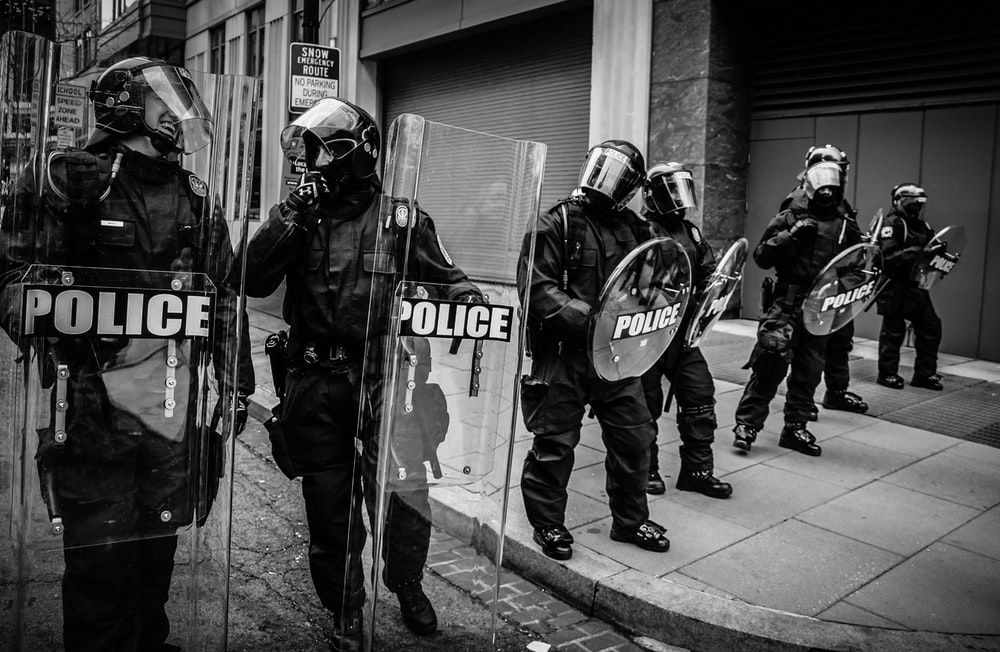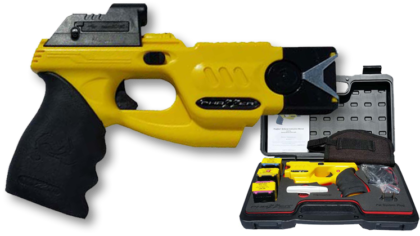
Far too many people have been killed at the hands of police officers. News media and Black Lives Matter have raised awareness in recent years on the excessive use of force by law enforcement. Among suggestions to curb such trends, the use of less-lethal weapons has been advocated. Fatal police shootings such as that involving Walter Wallace Jr. in Philadelphia in October 2020 remain fresh in the public’s mind.
What Is a Taser?
A taser, or Conductive Energy Weapon (CEW), otherwise known as a stun gun, is an alternative to traditional firearms. It allows an officer to fire two small dart-like electrodes. These deliver a high-voltage shock to temporarily disable a suspect. CEWS have been used in the United Kingdom since 2003. While it’s illegal for citizens to possess them—penalties here include up to 10 years in prison—police officers must complete 18 hours of training and an annual refresher course every year.1
In the United States, the laws on permitting and using CEWS vary with each state. The concept has been around for decades. However, the first modern CEW was introduced in the early 1990s. Still, the number of fatal police shootings continues to increase; on average, about 1,000 people are fatally shot by police each year, according to The Washington Post.2
The Need for a Non-Violent Solution
Police departments have been arming police officers with CEWs or weighing the option of doing so. Such is the case in Philadelphia, where city legislators proposed putting millions of dollars into buying thousands of Tasers® and related equipment, such as battery packs, live cartridges, and holsters, as well as training.
The discussion follows the killing of Wallace on October 26th. However, the plan was delayed in November, so it’s not anticipated that Philadelphia police officers will be outfitted with stun guns before the end of 2020.3 However, about a third of them have completed relevant training.4
Training has been identified as one effective method of curbing police brutality, and controlling officer behavior, by the American Psychological Association. Other methods include peer intervention, candidate screening, and collecting data on officer behavior.5
When Can a Police Officer Use a CEW?
In general, police policy allows cops to use these weapons when reasonable and the circumstances warrant such action. Otherwise, the use of a CEW can be considered excessive and/or abusive force but they are generally considered safe when used appropriately.
Your Complete Source of Less Lethal Weapons

At PhaZZer®, we provide some of the most effective and safest CEW models with features such as safety shut-down circuits, sight lasers, and rechargeable batteries. The PhaZZer® Enforcer is designed to comply with police guidelines. Continue browsing to learn more. For help finding the best CEW for your agency, feel free to contact Phazzer US at 833-742-9937 with any questions or to discuss your department’s specific needs.
Sources:
- https://www.bbc.com/news/uk-49405999
- https://www.washingtonpost.com/graphics/investigations/police-shootings-database/
- https://www.penncapital-star.com/criminal-justice/philly-city-council-hits-the-brakes-on-plan-to-arm-all-city-cops-with-tasers/
- https://www.phillytrib.com/news/local_news/city-council-looks-to-boost-police-funding-to-purchase-tasers/article_82bd624a-f8d6-53a9-bd98-8ce601532e11.html
- https://www.apa.org/monitor/2020/10/cover-police-brutality
.png)
